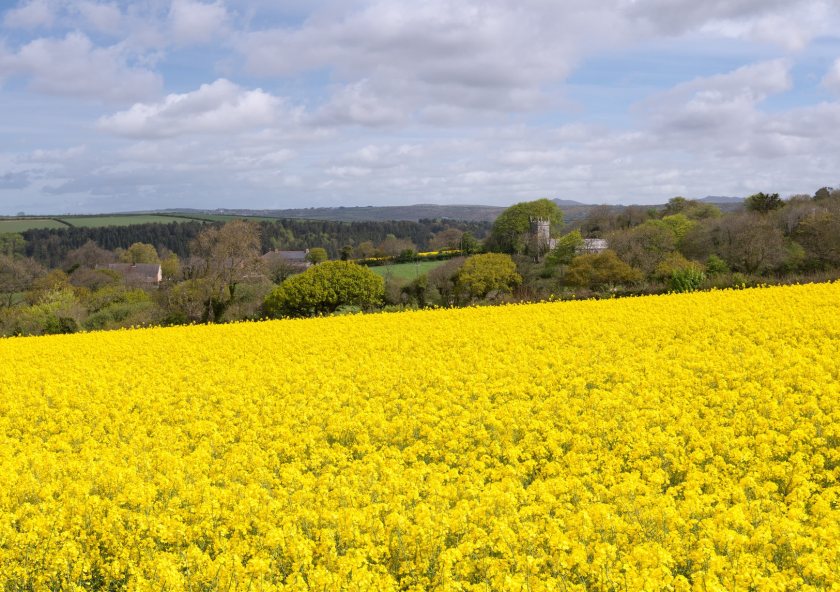
A major new five-year research programme has been launched to help farmers regain control over cabbage stem flea beetle (CSFB), one of the most damaging pests to oilseed rape (OSR) in England.
The programme will test the performance of new control products in the field, strengthen guidance on cultural control methods, deepen understanding of CSFB behaviour, and explore the role of natural enemies.
Researchers also aim to drive innovation and knowledge exchange to put practical solutions directly into farmers’ hands.
Announced by AHDB, the CSFB Research+ project brings together leading applied research organisations – ADAS, Niab and Rothamsted Research – in the largest single investment AHDB has made into CSFB.
The total project value is just under £750,000, with a third provided through cash and in-kind contributions from a broad network of industry partners.
Sacha White, AHDB’s lead crop protection scientist, said confidence in OSR has been hit hard by pesticide restrictions and resistance issues.
“Faced with a lack of chemistry and insecticide resistance challenges, confidence and commitment to OSR has waned, with the UK shifting from a net exporter to a net importer in recent years,” he said.
White added that the new initiative “brings together passionate and knowledgeable people from across the industry – spanning farmer cooperatives, input specialists, grain merchants, food producers and applied researchers – to co-design activity that puts CSFB control firmly back into the hands of farmers.”
Over the course of the project, researchers will examine the field performance of novel control products such as seed treatments, botanical biopesticides, entomopathogenic nematodes and synergists.
They will also expand the range of cultural control methods available to farmers, including practices like cultivating oilseed rape stubble to disrupt soil-dwelling pupae, or sowing brassicas in cover crops to divert beetles away from cash crops.
The project will also investigate how environmental conditions influence CSFB traits and migration patterns, helping to fine-tune cultural, biological and chemical control approaches.
Another strand of work will focus on the two main parasitoids of the beetle, Microctonus brassicae and Tersilochus microgaster, with particular emphasis on encouraging the former to thrive in the field.
Finally, the programme will work in close partnership with stakeholders to co-design knowledge exchange activities, promote innovation and ensure that results are quickly communicated to levy payers so they can be applied on farm.
The project builds on a decade of AHDB and Defra-funded research that has transformed understanding of CSFB life cycles and risks, and earlier this year led to the publication of a top ten list of management strategies.
CSFB Research+ officially runs from July 2025 to January 2030 and represents what AHDB describes as a comprehensive, industry-wide push to secure the future of oilseed rape in the UK.
